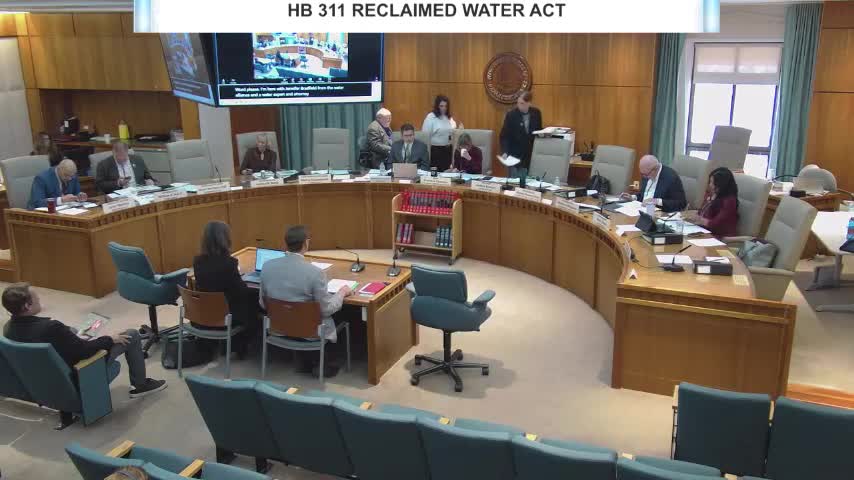Reclaimed Water Act draws heavy public debate over oversight, produced-water use
Get AI-powered insights, summaries, and transcripts
Subscribe
Summary
Representative Jeremy Small introduced a committee substitute for House Bill 311 that would authorize local reclaimed-water authorities to coordinate public-private investment in nontraditional water sources for economic development.
Representative Jeremy Small introduced a committee substitute for House Bill 311 that would authorize creation of local reclaimed-water authorities and enable public-private investment in nontraditional water sources for economic development.
Sponsor and supporters said the measure would expand tools for municipalities to use brackish or treated nonpotable sources — for example, to serve industrial cooling, clean up contaminated sites or support projects that cannot rely on limited freshwater supplies. Jennifer Bradfield and representatives of Borderplex, San Teresa companies and economic-development groups described potential jobs and investment that reclaimed water could support.
Opponents, including the Western Environmental Law Center, Rivers Run Through Us and other environmental and advocacy groups, urged a do-not-pass position or major revisions. They argued the measure as drafted could permit use of produced water (oil-and-gas wastewater) without sufficient water-quality standards, increasing risk to human health and the environment. Witnesses also said the bill creates a new hybrid public-private legal entity and does not yet contain clear guardrails on membership, conflicts of interest, tax status or liability.
Key technical points raised in committee: - Committee sub 0.3 narrowed the bill’s scope and added requirements that reclaimed water be subject to standards set by the Water Quality Control Commission and oversight by the New Mexico Environment Department (NMED). The bill also added explicit grounds for NMED to deny or, after approval, revoke authority permits for failing to meet standards. - Opponents said New Mexico lacks water-quality standards sufficient to evaluate many constituents found in oilfield produced water and that the bill’s definitions are broad enough to include produced water if WQCC standards are later adopted. - Supporters said the authority would be voluntary, limited to nonpotable uses, and modeled on existing economic-development corporation statutes to allow local investment and private capital for treatment and reuse projects.
No final committee vote on HB 311 was recorded in the transcript; members asked for additional technical clarifications about governance, tax status, liability and the interplay with existing statutes and the Public Regulation Commission.
Ending: Committee members of all parties praised the sponsor’s willingness to modify the bill and asked for more detailed guardrails tying authorities’ powers to public oversight, clearer membership and voting rules, and explicit limits on the types of reclaimed sources allowed until WQCC standards are in place.
